The Principal will remain in office until the end of his term.
According to Deputy Minister of Education and Training Nguyen Van Phuc, in the process of drafting 3 draft laws (the law amending and supplementing a number of articles of the Law on Education; the amended Law on Higher Education (GDĐH) and the amended Law on Vocational Education (GDNN), the Ministry of Education and Training has studied and fully absorbed the opinions in Resolution 71 of the Politburo to institutionalize them into the law. All 3 draft laws have omitted the contents on school councils (HĐT) for public schools. "According to Resolution 71, there will no longer be a Board of Directors in public higher education institutions, and private universities will still have Board of Directors. The functions of the Board of Directors under the previous law will have to be calculated and transformed. The most important function stated in Resolution 71 is the comprehensive leadership of the Party Committee. The contents on the leadership role of the Party Committee are institutionalized, while supplementing and adjusting the tasks and powers of the principal and the direct management agency (the governing body)," said Mr. Nguyen Van Phuc.
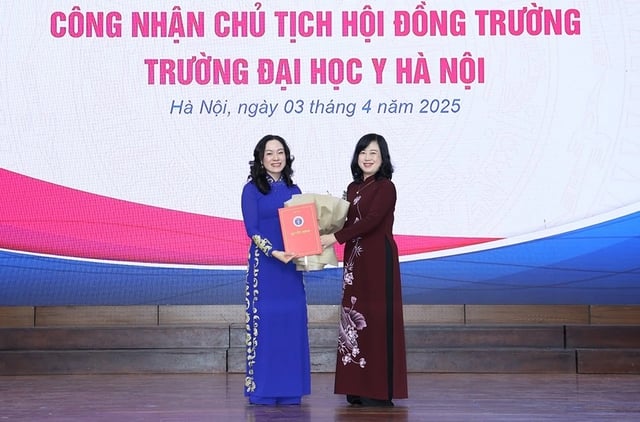
The new position for the Chairman of the University Council will be determined by the Government , not included in the law.
PHOTO: HUU LINH
Mr. Phuc also said that to deal with the current reality that all public universities already have Boards of Directors, the draft Law on Higher Education has a transitional provision. Specifically, the University Council and Boards of Directors of public universities will cease operations and are responsible for handing over relevant records and documents to the university presidents within 3 months from the date the amended Law on Higher Education takes effect. The presidents and vice presidents who were recognized before the amended Law on Higher Education takes effect will continue to hold their positions until they retire or the end of the term stated in the recognition decision or the end of their term.
In response to concerns of many National Assembly deputies because they did not see the Ministry of Education and Training showing any preparation for a solution to the personnel of the Board of Directors, Mr. Nguyen Dac Vinh, Chairman of the National Assembly's Committee on Culture and Society, expressed his opinion: "Regarding the transitional provisions, we accept the opinions of National Assembly deputies in the direction that the law should only stipulate principles and generalities. The Government will decide on specific issues. Second, for incumbent principals, in my opinion, we should not review their terms of office because of changes in the policy of abolishing the Board of Directors. Those who are in office should serve their full term, and then follow the new standards. That way, there will be less confusion and complexity."
Mr. Vinh added: "We only focus on solving policies for those who are chairmen of the Board of Directors. This is under the law. The simple solution is that you do your duties as assigned by the State, and if the Board of Directors is no longer there, then that duty is over. According to the cadre policy, you still have the conditions to be assigned other jobs. I think it is better to assign the responsibility to the Government to have a plan to direct the arrangement of specific people than to put it into law because it is only solving a practical problem. It is also only solved during the transition period, so assigning this task to the Government is reasonable."
DEBATE ON THE REGULATION "UNIVERSITIES ARE PERMITTED TO PROVIDE COLLEGE DEGREE TRAINING "
Also according to Deputy Minister of Education and Training Nguyen Van Phuc, one of the new points of the draft law on vocational education is to allow higher education institutions, if qualified, to register to train at colleges, but only in a number of professions and must follow Government regulations.
Specifically, for specialized groups of majors and professions in the fields of arts and sports, universities are allowed to teach vocational secondary schools, intermediate schools, and colleges in the same groups of majors and professions; universities are allowed to teach colleges in groups of majors and professions for teachers or other groups of majors and professions according to Government regulations; universities of the People's Armed Forces are allowed to teach intermediate schools and colleges in groups of majors and professions in the fields of national defense and security. "In reality, there will be some colleges that merge with higher education institutions. If universities are not allowed to train colleges, the merger will not be possible," said Mr. Phuc.
Ms. Nguyen Thi Thu Dung, a National Assembly delegate from Hung Yen province, said that the above content caused insecurity for vocational training establishments. She personally (as Principal of Thai Binh Medical College - PV) also disagreed with the regulation that universities can participate in college-level training in the draft law.
According to Ms. Dung, previously, when amending the Law on Higher Education, National Assembly delegates also debated this issue, and finally voted to pass the conclusion: Higher education is teaching from university level and above. The draft revised Law on Higher Education also stipulates: Higher education includes university and post-university (point d, clause 1, article 1). Resolution 71 of the Politburo on breakthroughs in education and training development recently also clearly defined: Higher education is the core of developing high-level human resources, talents, promoting the development of science and technology and innovation; vocational education plays a key role in developing college-level human resources.
Ms. Dung commented: "I agree with vocational education training at the college level, if it is only for training preschool teachers. As for other groups of professions, including specific professional groups in the fields of arts or sports, we must also consider. I suggest careful consideration to maintain stability for the development of vocational education."
According to Ms. Dung's analysis, teachers are trained to suit each level of education, for example, high school teachers are not necessarily able to teach elementary school. Similarly, not all university teachers can teach college, because college trains the direct labor force, focusing on skills, while university teachers (those with doctoral degrees, with titles of Associate Professor, Professor) teach theory, science and technology development and innovation.
The standards for university teachers are different from those for colleges. If universities are allowed to teach at the college level, universities will have to recruit more teachers because they cannot use their existing staff. On the other hand, if colleges are merged into universities, it will be disadvantageous for universities because the qualifications of teachers will be lowered (colleges only require teachers to have a master's degree). "I strongly request the draft law committee and the Culture and Social Affairs Committee to carefully examine the permission for universities to train at the college level," said Ms. Dung.
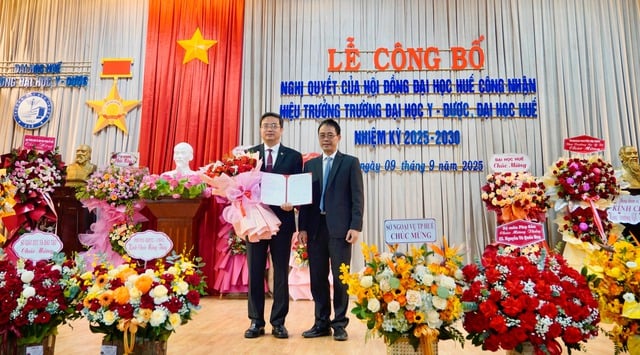
Principals and vice principals recognized before the revised Law on Higher Education takes effect shall continue to hold office until retirement or the end of the term stated in the recognition decision or the end of their term.
ILLUSTRATION: MAI THU
CONSISTENT IN STANDARDS NEEDED
According to Mr. Nguyen Dac Vinh, there needs to be a consistent mindset in designing the educational model. Our educational system is designed by two parallel systems: academic education and vocational education. These two models are interconnected (from high school level) and not separate. The regulations are intended to ensure the common interests of the system, not just for the interests of a certain entity. Currently, there is a situation where the college sector, on the one hand, demands "fairness" in the Higher Education Law and the Vocational Education Law, not allowing universities to train colleges, but on the other hand, proposes that the Education Law allow colleges to teach general education.
If we want fairness, the approach must be consistent in terms of standards. If we do not allow universities to train college students, we must also ask whether junior colleges, colleges, and universities are allowed to teach general education. How should university specialized high schools be handled?
Mr. Nguyen Dac Vinh analyzed: "In Vietnam, training is based on how many students go in and how many students go out, while in foreign countries, they train in a pyramid. For example, they recruit 2,000 students, after the first and second years, more than half of them drop out. When they graduate, there are only 500 people left. If they drop out in the early stages, they can go study something else. But by the third year (in the 5-year training program), if the students cannot study, they are still allowed to transfer to receive a college degree. That means if students cannot finish university, the system allows them to be granted a certificate corresponding to the level they have achieved. Not to mention special schools such as arts or sports, in the same school there are many levels of training. Students are recruited from the lower levels of high school, then continue to study intermediate and higher levels, and when they graduate, they even graduate from university."
Mr. Nguyen Dac Vinh emphasized: "I only present multifaceted educational practices and viewpoints so that we can discuss carefully and choose the best option."
Source: https://thanhnien.vn/bo-hoi-dong-truong-co-dieu-chinh-nhiem-ky-hieu-truong-185251012230441594.htm








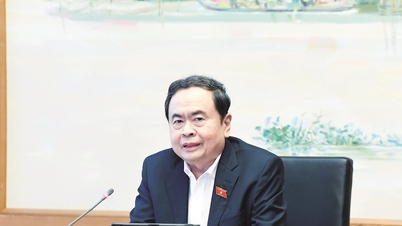

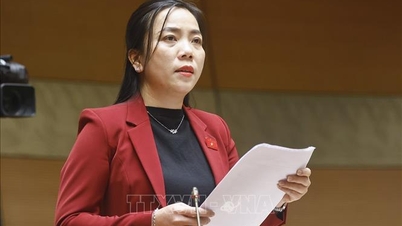

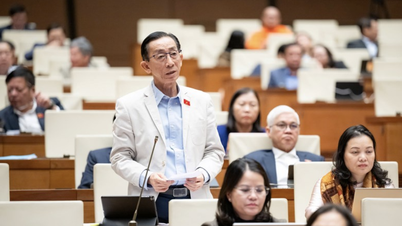

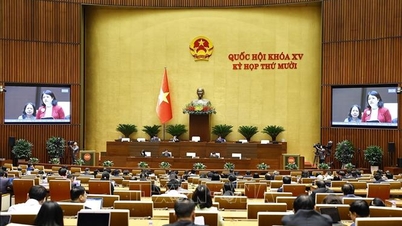
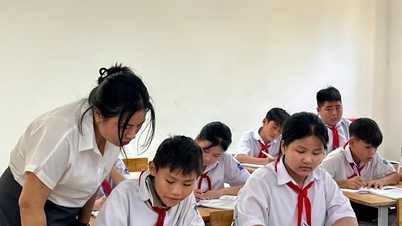

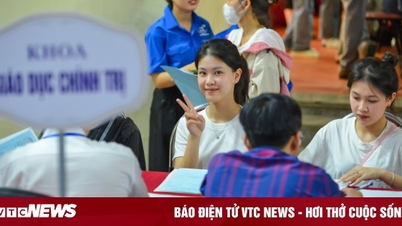

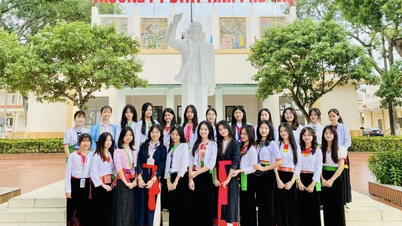

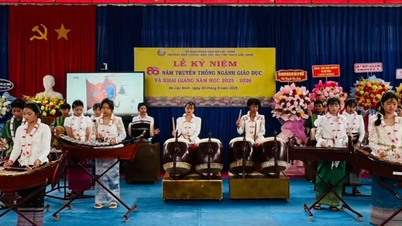
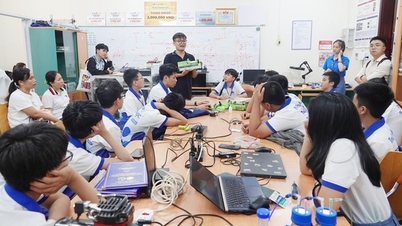

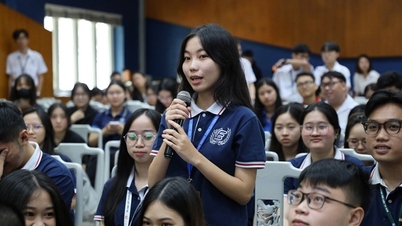









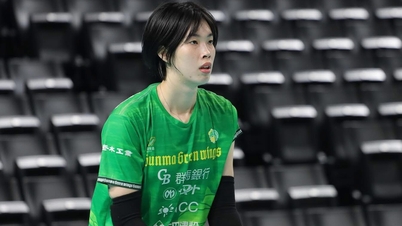






















































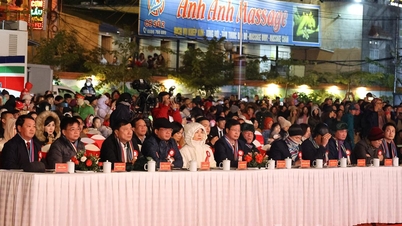






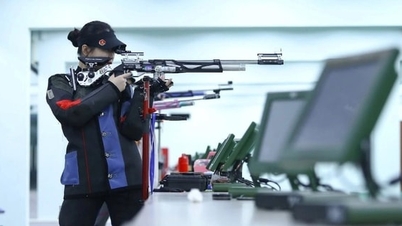













Comment (0)